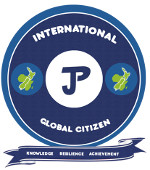Refugee policy issues in New Zealand.
SO Humanitarian Affairs report by Jean-Paul Bizoza - UNA NZ National Council Meeting November 2019
Current refugees and Asylum seekers’ situation in New Zealand 2019. New Zealand is one of 37 countries that resettle refugees under a regular quota program, which was established in 1987 in collaboration with the United Nations High Commission for Refugee (UNHCR).
The refugee quota program is generally decided by the New Zealand Government in three-year cycles in collaboration with Minister for Immigration and the Minister of Foreign Affairs. Currently, 1000 refugees are annually resettled in various regions along with 150 asylum seekers who are approved after a refugee status determination process.
Both quota and convention refugees generally share similar challenges. They have fear of harm or persecution in their home countries, cross international borders in search of protection and seek a brighter future. While New Zealand continues to assist UNHCR to deal with humanitarian crises around the world, former refugees and stakeholders share concerns about the intake refugee selection and resettlement policies.
Concerns around family link policy 2009
Although New Zealand provides resettlement and protection to the most vulnerable refugees, there have been red flags about the government approach composition and resettlement preferences. Some refugee’s advocates argue that there is possible discrimination in the selection process.
When the National government introduced a family link policy for Africa and Middle East intakes in 2009, refugees from these regions were required to have an existing link to New Zealand in order for them to be eligible for resettlement. In addition, it is noted that the
government aimed to bring so-called “refugees who have potential to resettle well in New Zealand”. The policies were criticized by UNHCR, former refugees and stakeholders.
Why is the “family link requirement” a discriminatory policy?
The number of people who flee conflict in Africa and the Middle East has increased in recent years. New Zealand refugee quota resettlement policies have not reflected on global realities and refugee’s resettlement policy as required the UN refugee agency. For example, in 2017/18, only 1.2 per cent of refugee quota came from the Middle East and 5.3 per cent from Africa, while Africa and the Middle East have the most complex and challenging humanitarian situations worldwide, with 31% and 13% global refugees respectively.
Therefore, restrictions imposed on refugees from Africa and the Middle East particularly family link and resettlement success requirements are unjust. Because they create barriers for most people from these two regions to be included in the refugee quota and they are against UNHCR guidelines that recommend governments uphold international obligations, resettle and integrate refugees based on the humanitarian needs not potential successful integration.
Refugee quota versus refugee convention discrepancies in New Zealand.
There are concerns that refugees are treated unfairly in New Zealand both in process and assistance in the mainstream. For instance, Asylum seeker’s protection status is determined by immigration New Zealand after a rigorous process, which does not always adhere to the 1951 UN refugee conventions.
Despite both refugee categories being recognized as New Zealand residents visa, “only people with Quota refugee status receive accommodation, employment and education for the first 12 months of their life in New Zealand.”Furthermore, convention refugees are denied similar support. They struggle to adjust in the mainstream and it is reported that the current Labour government has imposed additional restrictions. Including, Immigration New Zealand requiring police certificates from applicants country of citizenship (the country they are trying to escape persecution in) and any other country they have spent 5 years in, as well as a medical check.
In the light of this, refugee advocacy groups believe that the restriction will significantly affect rights to work or legally get involved in any activities that generate income. Unless it is well checked, the police certificate requirements could be a breach of UN refugee inventions and Human rights as it could be unfair even impossible to get police reports from the country, they fled persecution.
What UNA NZ should do?
UNA NZ should collaborate with other stakeholders in order to encourage New Zealand to Government to fully support UNHCR process especially refugee’s intake is referred to Immigration. National Council needs to approve a resolution to support the new approach, which has been recently (August 2019) approved by the current government. The approach includes the following steps:
● Remove racist refugee policy, increase quotas from Africa and Middle East.
● Government nudging the refugee allocation from Africa and the Middle East up from 14 to 15 per cent.
● Refugee Resettlement Strategy be extended to people who have been granted legal status as Convention refugees.
● Increase to the overall quota, from 1000 to 1500 a year.
● Adjust Half of the refugees NZ takes will be from the Asia-Pacific region with a spot set aside for large-scale refugee crises will double, to 200 in 2020.
● To set up a community sponsorship trial, an initiative to complement Refugee Quota Program.
On national level, UNA NZ needs to educate the public that New Zealand has signed an international convention that supports the right of people to seek asylum. New Zealand is also a signatory to:
● 1951 Convention Relating to the Status of Refugees.
● 1984 Convention against Torture and Other Cruel, Inhuman or Degrading Treatment or Punishment.
● 1966 International Covenant on Civil and Political Rights.
